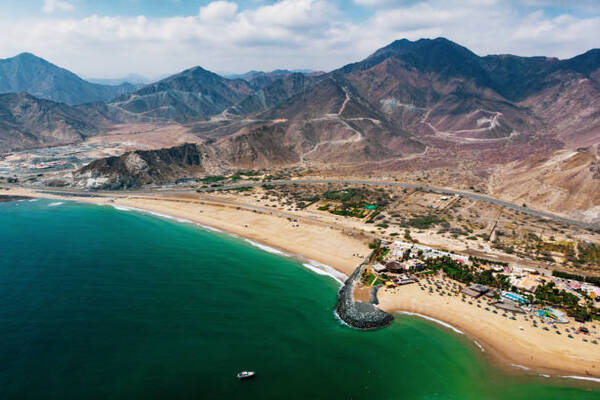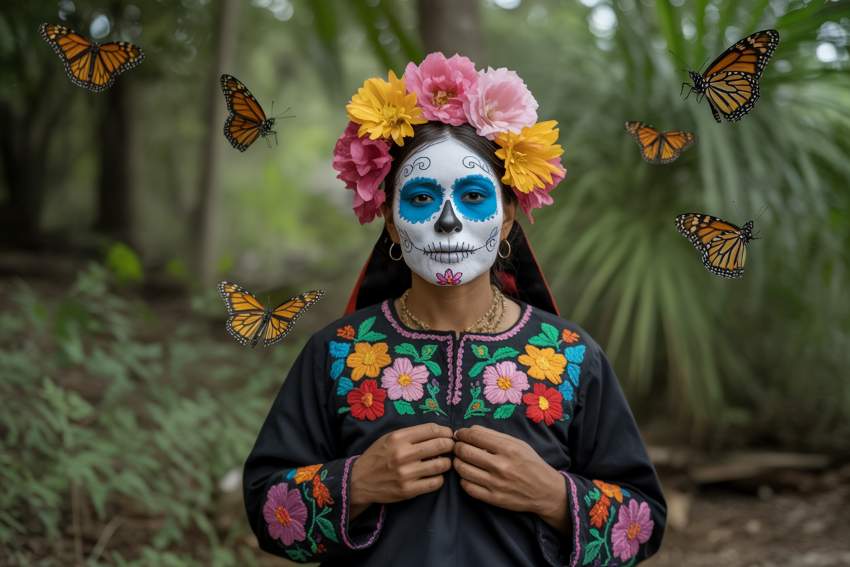UAE’s Fujairah Leads The Way In Adventure Tourism By Introducing New Policy Requiring Certified Mountain Guides For Treks And Upholding Safety Standards – Travel And Tour World

Report on Fujairah’s New Adventure Tourism Policy and its Alignment with Sustainable Development Goals
Introduction: A Strategic Initiative for Sustainable Tourism
The Emirate of Fujairah, United Arab Emirates, has implemented a new policy framework to govern its adventure tourism sector, with a specific focus on mountain trekking activities. This initiative is designed to enhance safety standards, professionalize the industry, and align the emirate’s tourism growth with key United Nations Sustainable Development Goals (SDGs). By mandating certified guides, launching a digital registration platform, and integrating local communities, Fujairah is positioning itself as a leader in responsible and sustainable adventure tourism. This report analyzes the new policy’s components and its direct contributions to SDG 3 (Good Health and Well-being), SDG 8 (Decent Work and Economic Growth), SDG 11 (Sustainable Cities and Communities), and SDG 15 (Life on Land).
Policy Framework for Enhanced Safety and Professionalism
In response to the increasing popularity of its outdoor attractions, particularly trekking in the Al Hajar Mountains, the Fujairah Adventure Center has instituted a mandatory requirement for all mountain treks to be led by officially certified mountain guides. This measure directly addresses safety and quality control within the rapidly expanding sector.
Digital Platform for Regulatory Compliance and Safety
A central component of the new policy is the launch of a digital platform, the first of its kind in the region, to support regulatory enforcement and promote safety. The platform’s functions are threefold:
- Route Registration: All trekking routes must be officially registered prior to commencement, enabling better tracking and safety oversight.
- Access to Best Practices: The platform provides a digital library of global best practices for mountain activities, promoting responsible conduct that supports SDG 15 (Life on Land) by minimizing environmental impact.
- Accredited Training and Certification: It facilitates enrollment in training programs accredited by the International Climbing and Mountaineering Federation (UIAA), ensuring guides meet international standards. This professionalization contributes to SDG 8 (Decent Work and Economic Growth) by creating skilled employment.
Mandatory Insurance for Financial Security
To further bolster safety and provide financial protection, a specialized insurance package has been developed in partnership with the Fujairah Insurance Company. This policy is now mandatory for all licensed commercial adventure operators. This requirement ensures comprehensive coverage for accidents, safeguarding both operators and tourists and directly supporting the targets of SDG 3 (Good Health and Well-being) by ensuring access to care and financial protection in case of incidents.
Socio-Economic and Cultural Impact on Local Communities
The policy framework extends beyond safety regulations to include significant measures for local community empowerment and heritage preservation, directly aligning with multiple SDGs.
Empowering Local Guides and Preserving Heritage (SDG 8 & SDG 11)
The initiative formally recognizes the unique expertise of local guides, described as “custodians of the mountain’s memory.” A distinct certification pathway has been created for these guides, acknowledging their deep-rooted knowledge of the terrain, culture, and history. This approach supports SDG 11 (Sustainable Cities and Communities) by safeguarding and promoting local cultural heritage.
- Eight local guides have already been certified, allowing them to partner with licensed tour companies.
- This integration provides a sustainable source of income, contributing to SDG 8 by promoting full and productive employment and decent work for all.
- Local guides are permitted to sell agricultural products from their farms during tours, creating an authentic cultural exchange and diversifying their income streams.
Implications for the Tourism Sector and Future Outlook
The new regulations are set to restructure Fujairah’s adventure tourism industry, enhancing its reputation and ensuring its long-term sustainability.
Impact on Tourists and Commercial Operators
For tourists, the policy guarantees that all organized treks are led by qualified professionals, increasing confidence and safety. For operators, compliance with certification and insurance requirements is now mandatory. While this requires initial investment, it positions them to capitalize on the growing demand for safe and sustainable travel experiences, thereby strengthening the formal tourism economy in line with SDG 8.
Contribution to National and Global Sustainability Agendas
Fujairah’s initiative is a key component of the UAE’s broader strategy to diversify its tourism economy. By creating a model for sustainable adventure tourism, the emirate demonstrates a commitment to:
- SDG 15 (Life on Land): Protecting the natural mountain ecosystems through regulated and responsible tourism.
- SDG 17 (Partnerships for the Goals): The collaboration between government bodies (Fujairah Adventure Center), private enterprise (Fujairah Insurance Company), and international organizations (UIAA) exemplifies the multi-stakeholder partnerships necessary to achieve the SDGs.
Conclusion
Fujairah’s new adventure tourism policy represents a comprehensive strategy to foster a safe, professional, and sustainable sector. By embedding principles of the Sustainable Development Goals into its regulatory framework, the emirate is not only protecting its natural and cultural assets but also creating decent work, ensuring visitor well-being, and establishing a replicable model for responsible tourism development in the region and beyond.
Analysis of Sustainable Development Goals in the Article
1. Which SDGs are addressed or connected to the issues highlighted in the article?
- SDG 3: Good Health and Well-being: The article’s primary focus on enhancing safety standards for adventure tourism directly connects to this goal. By requiring certified guides, registering routes, and mandating insurance, the policy aims to prevent accidents and injuries among tourists and guides, thereby promoting well-being.
- SDG 8: Decent Work and Economic Growth: The article highlights the professionalization of the adventure tourism sector, which contributes to sustainable economic growth. It specifically mentions creating a “sustainable source of income” for local communities by certifying local guides and integrating them into the tourism economy, which aligns with promoting decent work. The policy is part of the UAE’s broader strategy to diversify its tourism offerings and foster “sustainable tourism growth.”
- SDG 11: Sustainable Cities and Communities: The policy addresses the need to protect and preserve local heritage. The article refers to local guides as “custodians of the mountain’s memory” and emphasizes their role in sharing insights into the area’s “rich culture, history, and agricultural practices.” This focus on safeguarding cultural and natural heritage is a key component of creating sustainable communities.
- SDG 15: Life on Land: The article discusses the need to protect the natural environment of Fujairah, particularly its “rugged mountains” and “stunning landscapes.” The implementation of regulations for trekking and promoting “sustainable, nature-based travel” aims to manage the impact of tourism on terrestrial ecosystems, which is central to SDG 15.
- SDG 17: Partnerships for the Goals: The article provides a clear example of a partnership to achieve sustainable development. The collaboration between the Fujairah Adventure Center and the Fujairah Insurance Company to create a specialized and affordable insurance package for operators demonstrates a public-private partnership aimed at strengthening the adventure tourism sector.
2. What specific targets under those SDGs can be identified based on the article’s content?
-
Under SDG 3 (Good Health and Well-being):
- Target 3.6: While this target specifically mentions halving deaths and injuries from road traffic accidents, its principle of reducing injuries is applicable. The policy’s core objective is to minimize accidents and incidents during mountain treks through mandatory safety measures, certified guides, and insurance.
-
Under SDG 8 (Decent Work and Economic Growth):
- Target 8.9: “By 2030, devise and implement policies to promote sustainable tourism that creates jobs and promotes local culture and products.” This target is directly addressed. The article describes a new policy for sustainable adventure tourism, its role in creating jobs for “eight local guides,” and its mechanism for promoting local culture and agricultural products sold by these guides during tours.
-
Under SDG 11 (Sustainable Cities and Communities):
- Target 11.4: “Strengthen efforts to protect and safeguard the world’s cultural and natural heritage.” The policy’s emphasis on empowering local guides who possess deep knowledge of the region’s history and culture is a direct effort to safeguard and promote Fujairah’s intangible cultural heritage as part of the tourism experience.
-
Under SDG 15 (Life on Land):
- Target 15.1: “By 2020, ensure the conservation, restoration and sustainable use of terrestrial and inland freshwater ecosystems and their services, in particular forests, wetlands, mountains and drylands…” The regulations for trekking in the Al Hajar Mountains represent a strategy for the sustainable use of a mountain ecosystem, ensuring that tourism growth does not lead to environmental degradation.
-
Under SDG 17 (Partnerships for the Goals):
- Target 17.17: “Encourage and promote effective public, public-private and civil society partnerships…” The article explicitly mentions the partnership between the Fujairah Adventure Center and the Fujairah Insurance Company as a mechanism to achieve the policy’s goals, fitting this target perfectly.
3. Are there any indicators mentioned or implied in the article that can be used to measure progress towards the identified targets?
-
For Target 8.9 (Promote sustainable tourism):
- Indicator (Directly Mentioned): The number of certified local guides. The article states, “eight local guides have already been certified,” providing a quantifiable measure of progress in integrating the local community into the tourism sector.
- Indicator (Implied): The existence and implementation of a sustainable tourism policy. The entire article is about the new policy, making the policy itself an indicator of a strategy being put into action.
- Indicator (Implied): Income generated by local guides from tours and the sale of agricultural products. The policy allows local guides to earn a “sustainable source of income” and “sell agricultural products,” which could be measured to track economic benefits.
-
For Target 11.4 (Protect cultural and natural heritage):
- Indicator (Implied): The number of tourism companies partnering with certified local guides. The policy requires local guides to “host tours in partnership with licensed companies,” so tracking these partnerships would indicate the level of integration of cultural heritage into the formal tourism sector.
-
For Target 3.6 (Reduce injuries):
- Indicator (Implied): The number of trekking-related accidents or incidents reported per season. The success of the safety policies, including mandatory guides and insurance, could be measured by a reduction in such incidents.
-
For Target 17.17 (Promote partnerships):
- Indicator (Directly Mentioned): The number of public-private partnerships established for sustainable tourism. The article identifies one specific partnership between the Fujairah Adventure Center and the Fujairah Insurance Company.
SDGs, Targets, and Indicators Table
| SDGs | Targets | Indicators |
|---|---|---|
| SDG 3: Good Health and Well-being | 3.6: Halve the number of global deaths and injuries from road traffic accidents (principle applied to trekking). |
|
| SDG 8: Decent Work and Economic Growth | 8.9: Devise and implement policies to promote sustainable tourism that creates jobs and promotes local culture and products. |
|
| SDG 11: Sustainable Cities and Communities | 11.4: Strengthen efforts to protect and safeguard the world’s cultural and natural heritage. |
|
| SDG 15: Life on Land | 15.1: Ensure the conservation, restoration and sustainable use of terrestrial and inland freshwater ecosystems and their services, in particular… mountains… |
|
| SDG 17: Partnerships for the Goals | 17.17: Encourage and promote effective public, public-private and civil society partnerships. |
|
Source: travelandtourworld.com
What is Your Reaction?
 Like
0
Like
0
 Dislike
0
Dislike
0
 Love
0
Love
0
 Funny
0
Funny
0
 Angry
0
Angry
0
 Sad
0
Sad
0
 Wow
0
Wow
0














































































